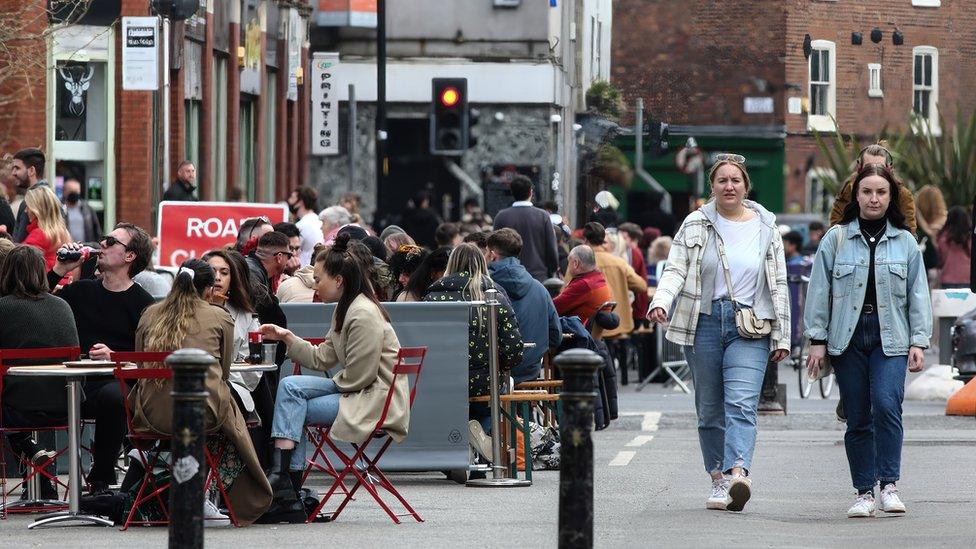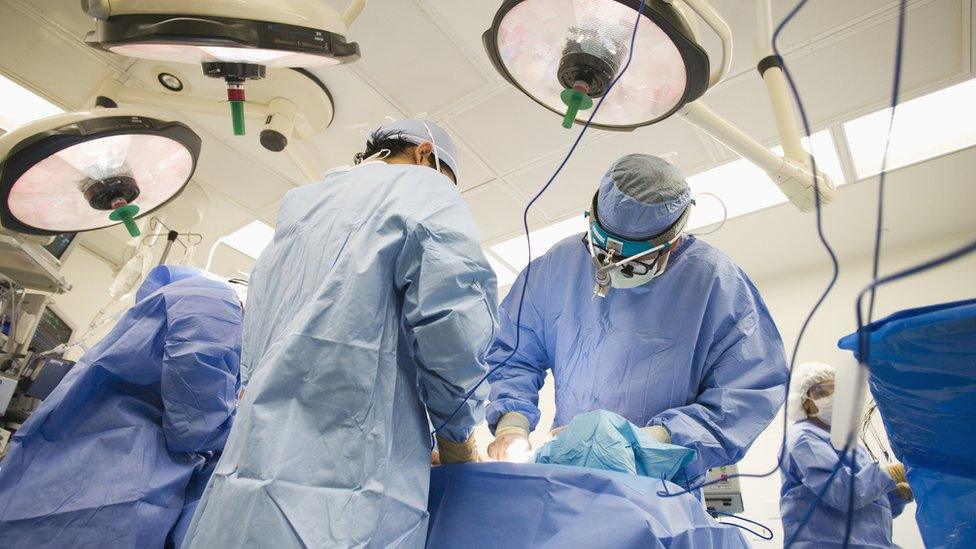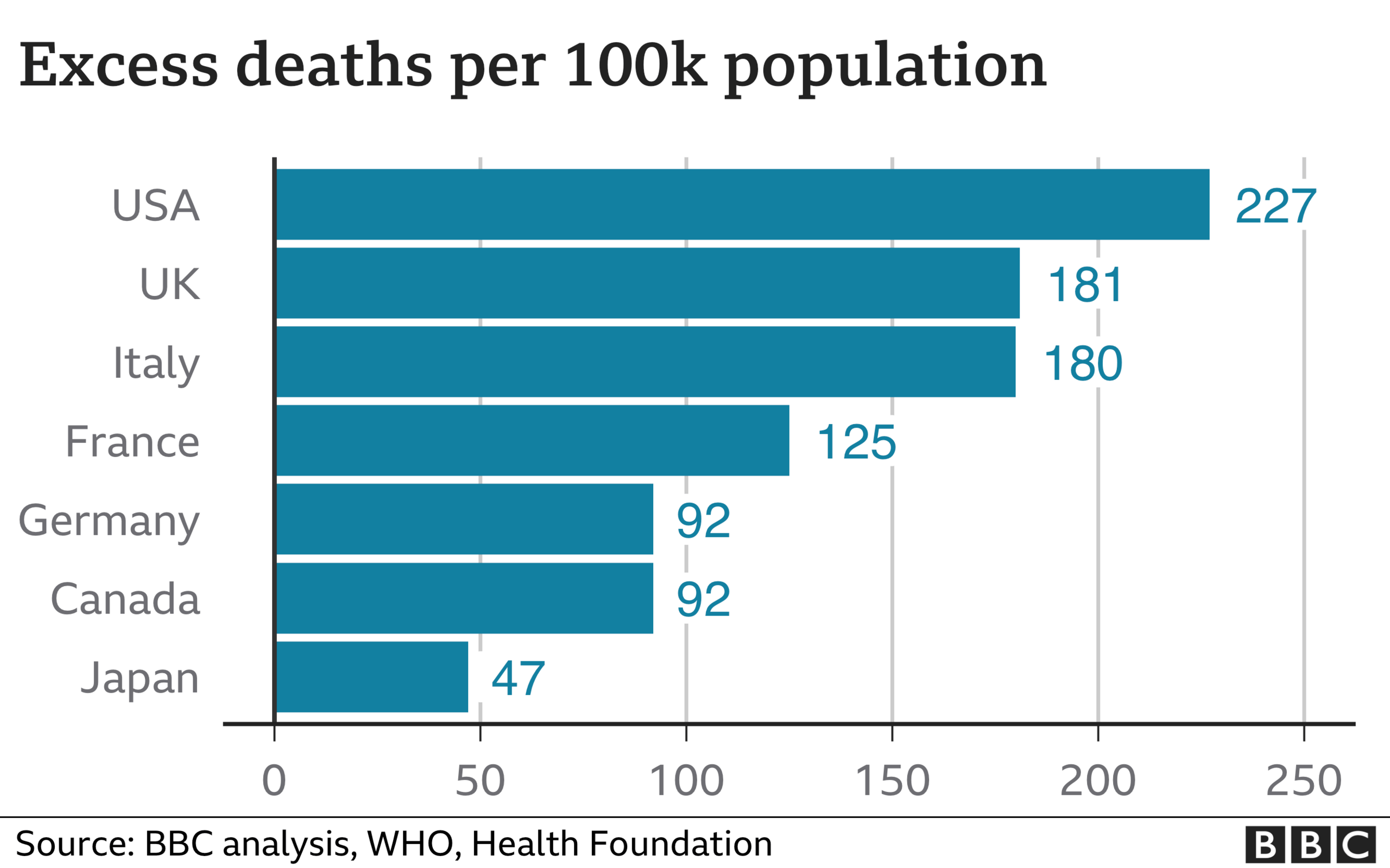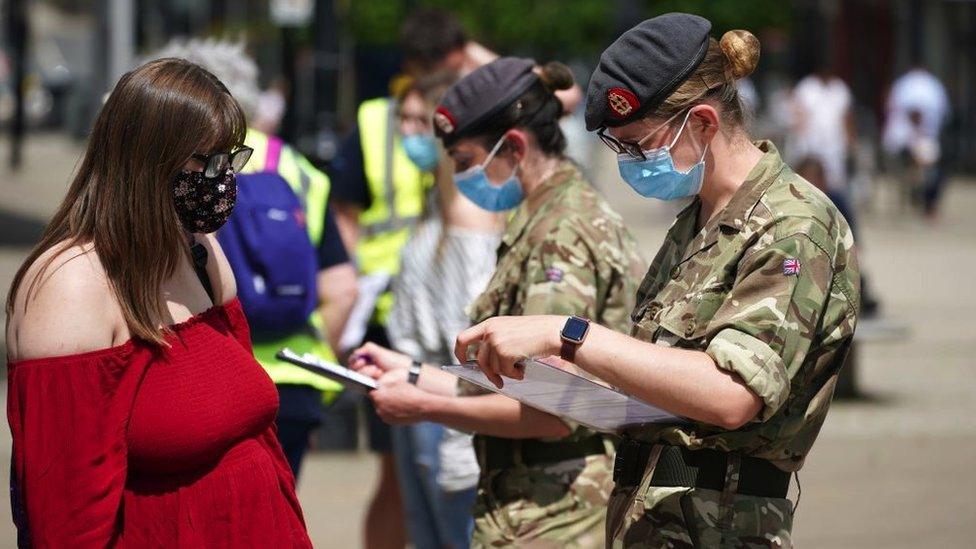Covid-19: Delta variant makes up 91% of new UK cases as US overtakes as hardest hit
- Published
Here are five things you need to know about the coronavirus pandemic this Thursday evening. We'll have another update for you tomorrow morning.
1. Delta variant makes up 91% of new cases in UK
The health secretary, Matt Hancock, spent four hours today being questioned by MPs over his handling of the pandemic. During his testimony, he said that the Delta variant, first discovered in India, now makes up 91% of new coronavirus cases in the UK. He also responded to claims by the former aide to the prime minister, Dominic Cummings, that delays to lockdowns and mistakes by Mr Hancock and others had needlessly cost "tens of thousands" of lives. Mr Hancock said locking down earlier than 23 March 2020 would have gone against the scientific advice at the time. He also rejected Cummings's claims that he had lied about care home testing.
Five things Health Secretary Matt Hancock told MPs

2. UK Covid cases over 7,000 for a second day in a row
Another 7,393 coronavirus cases have been reported in UK, according to the latest figures, external. It's the second day running cases have topped 7,000 - prior to this that number was last surpassed in late February. Seven more deaths were reported of people who had tested positive within the previous 28 days. In the last seven days, there have been 44,008 new positive coronavirus tests in the UK. That's a rise of 17,036 - or 63.2% - from the previous week. The data is "not heading in the right direction" and suggests there will be a further rise in the coming weeks, warned chief executive of the UK Health Security Agency Dr Jenny Harries.


3. Hospital waiting list tops 5m in England
The number of people waiting for hospital treatment in England has topped five million for the first time, NHS England data shows. There were 5.12 million people on the waiting list at the end of April. And more than 385,000 patients have been waiting for a year - down by 50,000 on the previous month. But before the pandemic only 1,600 people faced year-long waits. Jonathan Pearson-Stuttard, who led the research, said: "Without urgent action targeting areas with the highest unmet need, we risk a generation of patients living in poorer health."


4. US overtakes UK as hardest hit by Covid deaths
The US has overtaken the UK as worst hit by the first year of the pandemic in the G7 group of richest countries, analysis shows. The study, done for the BBC by the Health Foundation, measures deaths above expected levels for a normal year. The analysis shows that between March 2020 and February 2021, there were a fifth more deaths than in a normal year for the US (+20.2%) and a little bit under a fifth for the UK (+19.6%). Charles Tallack from the Health Foundation said the countries faring best through the pandemic were Japan followed by Germany.


5. Has Bolton turned a corner with the Delta variant?
Four weeks ago, Bolton became the focus of national attention as the Delta variant began to threaten the UK's unlocking schedule. In May, 155,016 Covid tests were carried out in the town - one test for every two people. The vaccine bus and other pop-up sites like it have jabbed an extra 22,000 people since 7 May, alongside 80,000 doses given at doctors' surgeries and pharmacies. But officials believe the publicity might have helped achieve something harder to measure - a subtle shift in behaviour as people became more aware of the risk of the new variant. Now cases are down 30% - here's how they did it.

Combat medics, from Queen Alexandra's Royal Army Nursing Corps, at a rapid vaccination centre

And there's more...
As England waits to find out if all legal restrictions will end as planned on 21 June here's how wedding planners and couples are feeling ahead of the big day.
Find further information, advice and guides on our coronavirus page.


What questions do you have about coronavirus?
In some cases, your question will be published, displaying your name, age and location as you provide it, unless you state otherwise. Your contact details will never be published. Please ensure you have read our terms & conditions and privacy policy.
Use this form to ask your question:
If you are reading this page and can't see the form you will need to visit the mobile version of the BBC website to submit your question or send them via email to YourQuestions@bbc.co.uk, external. Please include your name, age and location with any question you send in.

ADDICTED TO TANNING: How far would you go for the perfect glow?
NEW DRAMA - TIME: What does it take to survive in prison?
